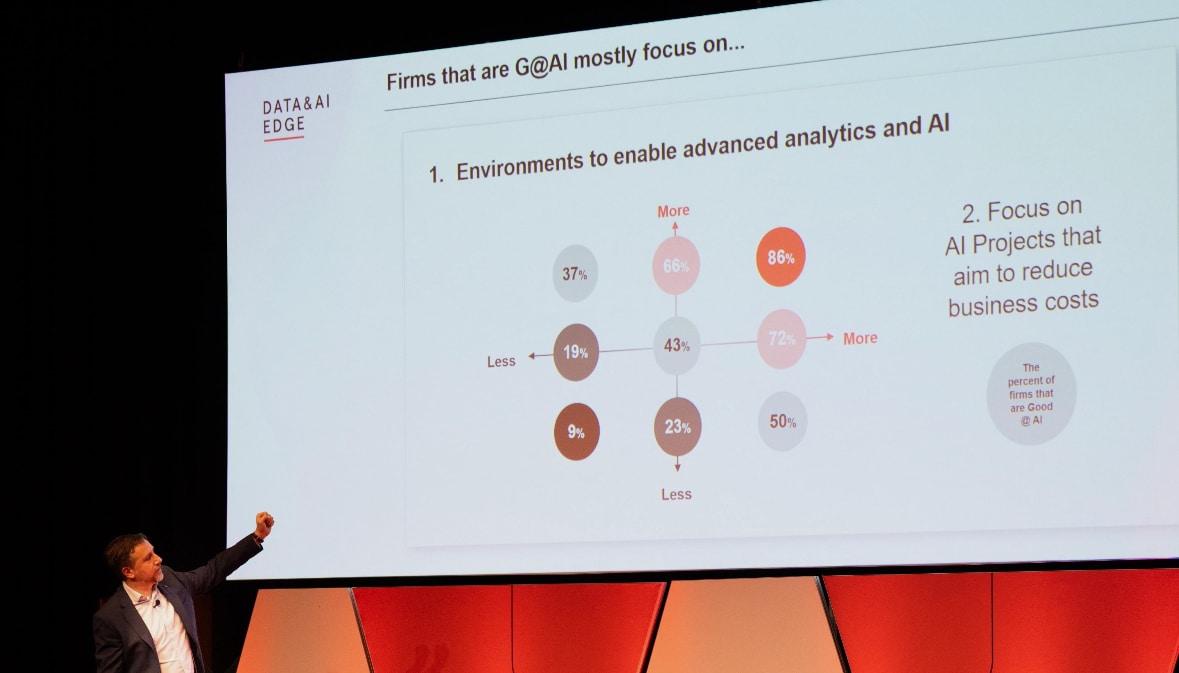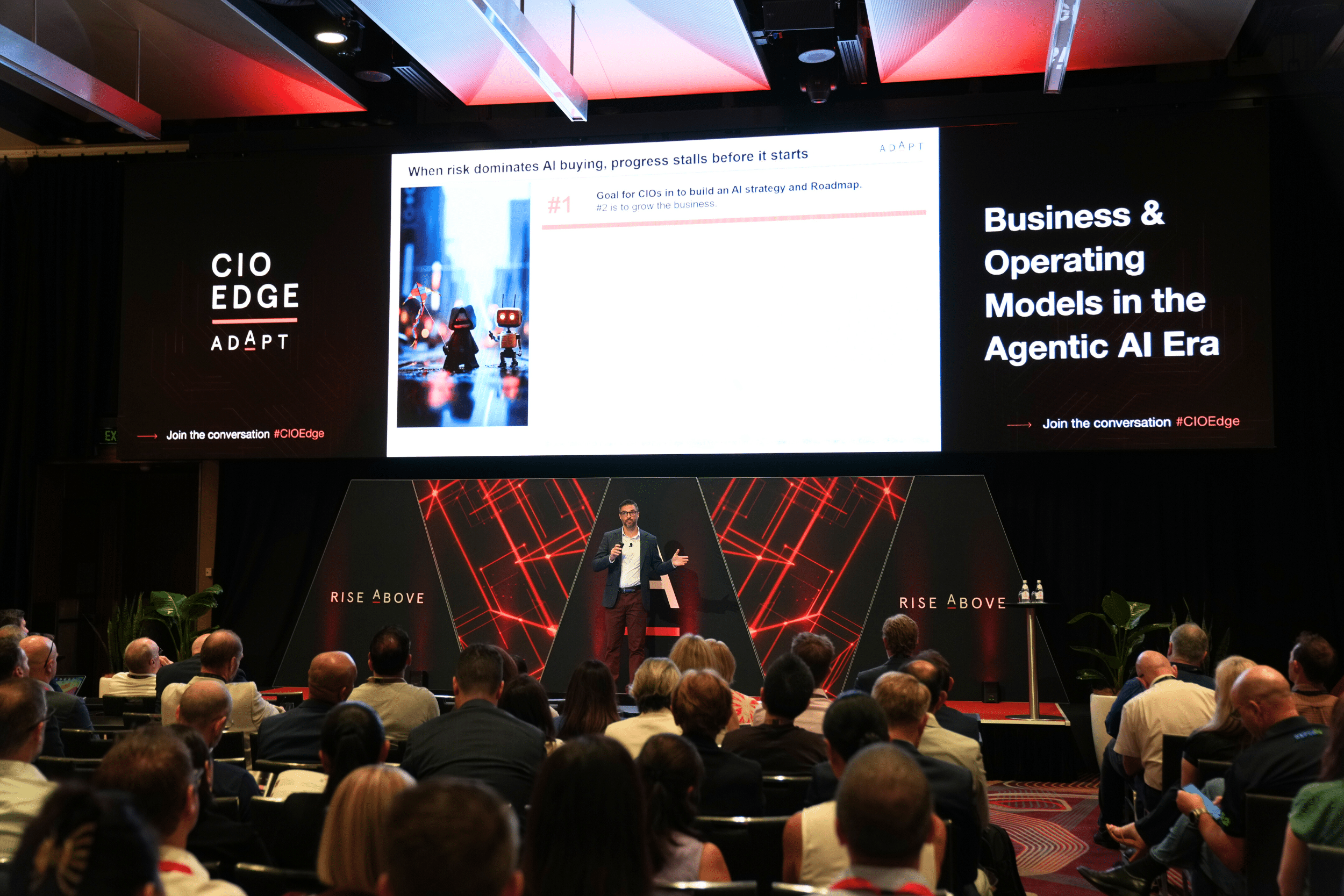Dr Michael G Kollo, Director of AI at ADAPT, explained why AI scale depends on use case alignment, data maturity, and flexible strategy at Data & AI Edge.
AI is moving fast and most organisations are struggling to keep up.
Dr Kollo said scaling success is not about tools or teams alone, but about aligning data capability with business intent and maintaining strategic flexibility.
Drawing on insights from ADAPT’s CIO Survey, he emphasises that despite the hype, most organisations remain unsure about their readiness to support AI use cases.
While there is growing interest and a clear shift toward integrating AI in operations, few companies feel fully confident in their capabilities.
Those who are realising tangible value from AI share two traits: they track business costs and benefits rigorously and prioritise building environments that support advanced analytics.
There is a clear link between data maturity and AI enablement.
The survey identified three top enablers: data integration, organisational data literacy, and data quality.
However, Dr Kollo warns against generic data strategies, advocating instead for use-case-specific enablement.
Different AI applications, like marketing, cyber threat detection, or knowledge management, demand different types of data infrastructure and support.
Therefore, organisations should align data initiatives with the specific AI use cases the business wants to pursue, rather than applying a one-size-fits-all approach.
There is the need for a dynamic, responsive strategy that continuously benchmarks data capabilities and adjusts to shifting business priorities.
Success depends on staying tightly aligned with the business, selecting the most relevant use cases, and adapting data enablement efforts accordingly.
As use cases evolve faster than infrastructure can be built, a collaborative, agile approach will be crucial.
Organisations are encouraged to use benchmarking tools to evaluate their current maturity and identify focus areas to stay competitive in the AI-driven landscape.
Key takeaways:
- Use-case-driven data enablement is critical: Organisations should align their data infrastructure efforts with specific generative AI use cases, as each use case demands different data capabilities (e.g., policy management vs. sales automation).
- Three top enablers of AI success: The most successful organisations in AI adoption prioritise data integration, organisational data literacy, and data quality. These are foundational for enabling impactful AI outcomes.
- AI readiness remains low, ROI is unclear: Despite rising adoption, most organisations lack confidence in their AI readiness and struggle to achieve ROI, highlighting the need for better strategic alignment, benchmarking, and agile capability development.





























